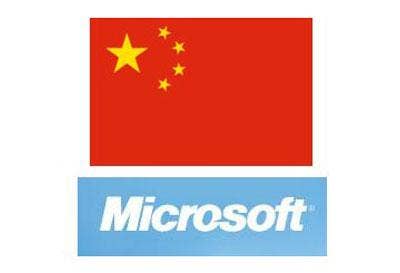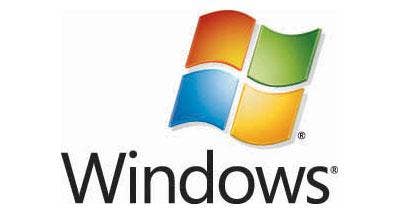8 Bizarre Statements By IT Industry Execs

Paul Otellini Would Rather Be A Cannibal
Intel CEO Paul Otellini says his company's focus is shifting from making its processers faster to making them smaller and cheaper. The problem with that strategy, according to some industry watchers, is that the low-end, Intel-powered hardware could eat into sales of higher end products.
However, Otellini says quality will be the determining factor for many folks, and he's not afraid that low-end Intel gear could cannibalize sales of higher end gear.
"If a higher-priced notebook isn't substantially better and doesn't offer more utility, shame on us," Otellini told USA Today recently. "If there's cannibalization, I'd rather be the cannibal than someone else."
Ah, that explains a lot: we were wondering what happened to our missing reporter after that Intel interview.

Vista UAC Is Supposed To Annoy People
In February at RSA, David Cross, a product unit manager at Microsoft who was part of the team that developed the User Account Control feature in Vista, said Microsoft's strategy with UAC was actually to irritate users and ISVs in order to get them to change their behavior. "The reason we put UAC into the platform was to annoy users. I'm serious," said Cross.
OK, we get that what Cross meant to say was that Microsoft wants ISVs to develop and test their applications as standard users as opposed to administrators. But c'mon David, in light of the frosty reception Vista has received in the market since launch, couldn't you have made this point another way?
"Well, the statement was supposed to be a theatrical exaggeration to get the audience's attention," Cross told ChannelWeb in a recent interview. "Trust me, since then, I have received numerous suggestions to take real drama classes. Here's the absolute truth: UAC actually was NOT designed to annoy users, but to reduce their exposure to attacks."

The EU, Microsoft, And Forbidden Love
The European Commission seems to enjoy whaling away at Microsoft over antitrust issues, levying more than $2.5 billion in fines against the software giant to date. So you'd think that when it comes to its IT infrastructure, the EU would have long ago deployed Macs or desktop Linux, just to make a point, right?
Wrong. In a delicious stroke of irony, an EU representative recently admitted that the European Commission still favors Microsoft products over open source alternatives. "For the moment we are working in a Microsoft environment," Christos Ellinides, the European Commission's director of corporate IT solutions and services, said in an interview with Reuters.
Neelie Kroes, European Commissioner for Competition (pictured here), recently reiterated the EC's vow to purchase more open source software. "This policy, adopted last year, needs to be implemented with vigor," Kroes said in a recent speech.

Oracle Is Good At Hiding Bodies
In a recent interview with Fast Company, industry analyst Rob Enderle discussed how Apple's, "I'm a PC, I'm a Mac" advertising campaign has had a major negative impact on Microsoft's brand reputation.
"Nobody messes with anyone in the tech industry the way Apple has messed with Microsoft," Enderle said in the interview. "It's the first time I've ever seen a major national campaign that disparages a competitor, and the competitor just sits back and takes it. If somebody tried to do that to Oracle, you wouldn't be able to find the body."
OK, first Intel CEO Paul Otellini says he'd rather be a cannibal, and now we're talking about Oracle hiding bodies? Anyone sensing a trend here? Competition in the IT industry is fierce, but clearly some folks are getting a little carried away!

Dell Hasn't Satisfied The Channel
In an April interview, Greg Davis, vice president and general manager of Dell's Americas channel group, told ChannelWeb the company hasn't yet succeeded in meeting all of its channel program goals.
"We haven't been able to do everything that the channel has wanted," Davis said.
Whoa, stop the presses, Dell hasn't fulfilled its channel promises. In other news, water is wet, and it's hot on the sun today. We nominate Davis' comment as the year's biggest understatement.

Twitter: Don't Hate Us Because We're Popular
The micro-blogging service Twitter is all the rage amongst Web 2.0 cognoscenti, but several recent service outages have some users questioning the company's ability to deliver a steady platform on which they can tweet. Last month, by way of explanation, Alex Payne, a developer at Twitter, said the outages are simply due to the strain that frequent, so-called power users put on the service.
"The events that hit our system the hardest are generally when 'popular' users -- that is, users with large numbers of followers and people they're following -- perform a number of actions in rapid succession. This usually results in a number of big queries that pile up in our database(s)," Payne wrote in a post on the Twitter Developer Blog.
Um, OK, so your service is popular, and some people are using it too much, so it crashes sometimes. Sure, that clears things up. Actually, no, it doesn't. What are we supposed to do with this explanation, Alex?
And on another note, what's up with the cutesy LOLcats service outage pages on the Twitter Website?

Microsoft Loves Antitrust Investigations
Microsoft has spent much of the last decade wrangling over antitrust matters with the U.S. Department Of Justice and the European Union. Recently, China state media reported that the Chinese government is investigating Microsoft over antitrust issues, and could possibly sue Microsoft under a new anti-monopoly law that takes effect August 1.
One might imagine that Microsoft would be thinking "Oh no, not again," but actually, a spokesperson for the company said Microsoft is actually delighted about the investigation.
"We fully support China's efforts to establish an environment conducive to promoting fair competition and we believe we are in compliance with Chinese law. We also believe efforts such as the AML (anti-monopoly law) will better safeguard interests and benefits of consumers, encourage innovation and enhance economic development," the Microsoft spokesperson told ChannelWeb.
Right, so laws against monopolies are good, and we think monopolies are pretty damaging to the industry's growth. Anyone else seeing the irony in this statement?

Windows Is In Danger Of Collapsing
At a Gartner event in April, Michael Silver and Neil MacDonald said Microsoft is overburdened by legacy Windows code and faces significant challenges in the years ahead, and that this could lead to the demise of Windows.
Really? Hey guys, Chicken Little called, she wants her drama back. Alarmist much? Why not also predict that Office is going to bite the dust, and Microsoft will be a penny stock in a couple of years (well, that's not such an outlandish theory in the opinion of some insiders).
The hallways of history are littered with the carcasses of companies that underestimated Microsoft's resolve and believed that the company was doomed. Sure, Windows faces challenges from Linux, and Vista hasn't gone over that great, but c'mon, Windows is still pretty dominant all over the world, and Microsoft has one of the most powerful legions of developers on the planet. Windows ain't dead, it's just sleeping.